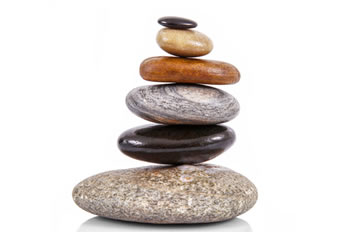The Down Side of Revering Selflessness
Selfish or Centered in the Self?
How early in life do many children come to believe they are selfish because they think about themselves and what they want?’
Yes, it is important to learn the balance of giving and receiving and thinking of self and thinking of others,
but when the balance swings way to either end, isn’t it just as potentially detrimental?
As a professional caregiver (nurse) and personal caregiver for much of my life, the balance tipped toward ‘selflessness’, which was applauded.
When I finally learned the concept of balance and began to look at how important it was for everyone that I work on being ‘centered in the self’, I don’t recall getting high fives and kudos,
but, I was fortunate to have family and a few close friends who were supportive in acknowledging I was caring for myself.
As females, especially, we learn to put others first.
There is a time for placing others as a priority, yes.
I say, the majority of the time, our well-being comes first.
Why?
Because everyone benefits when I care for me.
How many of us were encouraged enough self expression to be able to say, “I don’t like this’ or ‘I don’t want to do this’?
How many of us were encouraged to be our own person and explore what that meant?
The adults who influenced us, were they encouraged in this way?
Perhaps if I had been encouraged in this manner, rather than commended for my selflessness and responsibility, I would not have internalized that my value and worth lay in putting everyone’s needs above mine and negatively impacting my health.
I have learned so much since 1994 when I spent 3 months recovering from a stress induced illness.
Now when someone tells me they feel they are selfish, or have been told they are selfish, I ask them to consider, that instead, they are ‘centered in the self’ and setting a healthy example for others.
I now consciously make the choice to provide care to others while making sure to prioritize care of me!
When my mother fell once when she was living with me, I felt guilty about acknowledging that one of the many reasons her risk for falling induced stress, was due to the potential for inconvenience and added responsibility for me. This was a reality, so there was really nothing to feel guilty about feeling or expressing.
As an adult I made the choice to care for my ill husband and did all I could to care for myself so I could continue to care for him.
John learned, as most men do, that women are the nurturers and caregivers.
When he was at the height of his mental difficulties from his illness, at times, he would infer I was selfish, although not in those words.
In his mental state he could not comprehend how critically important it was for me to care for myself.
During a critical hospitalization, my brother flew in to lend me support and had rented a hotel room near the hospital.
While one of us stayed with John, the other would go to the hotel and sleep.
How glorious it was to sleep in a bed for a full 7 or 8 hours, without interruption!
One day I was late getting back to the hospital because I had spent time in the outdoor hot tub and swam some laps in the pool.
When I returned to the hospital, later than expected, John asked, ‘where have you been?!’
I told him I slept then took time to swim and soak in the hot tub.
He could not comprehend that I would be relaxing as he lay in the hospital, denied any oral intake due to the high risk of aspirating fluids into his lungs. How could I be enjoying myself when he was in pain and scared. He was not his usual self due to the encephalopathy (abnormal brain function) causing personality changes, and he openly shared his frustration.
When John was healthy he always encouraged me to take care of myself.
Having internalized the cultural perspectives about being female I already felt guilty taking time for myself.
Although I knew it was primarily the encephalopathy talking, this showed me how he had learned the same messages about females that I had learned and at some level believed I should be totally self sacrificing.
Selflessness and being self sacrificing can be a killer if poor to minimal self care is a consequence.
No one benefits.
When my mother was living with me and I was assisting her with her some of her needs, I reminded myself of all I learned caring for John, and found ways to ‘center in the self’ and prioritize care for me.
The last thing we needed was for the ‘caregiver’ to become ill.
Here is a link to an excellent article, with practical resource information if you are a caregiver or know someone who is a caregiver.
http://weatheryourstorm.com/when-the-caregiver-becomes-ill/#
Do you sacrifice care for yourself as you care for others? Is selflessness a core value? Do you feel caring for yourself is selfish or self centered? Or do you realize that being ‘centered in the self’, and choosing to prioritize your health and well-being, serves everyone?
As always, I would love to hear from you.
Donna

